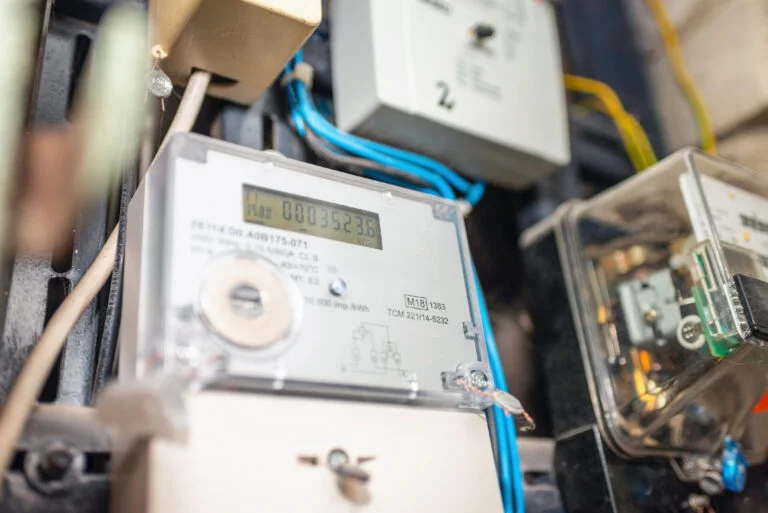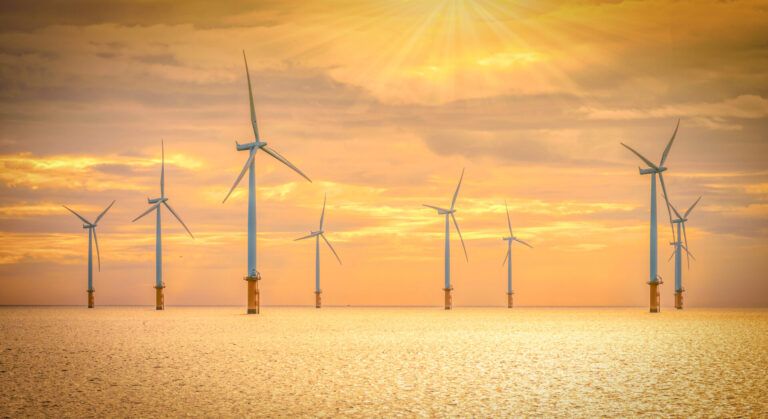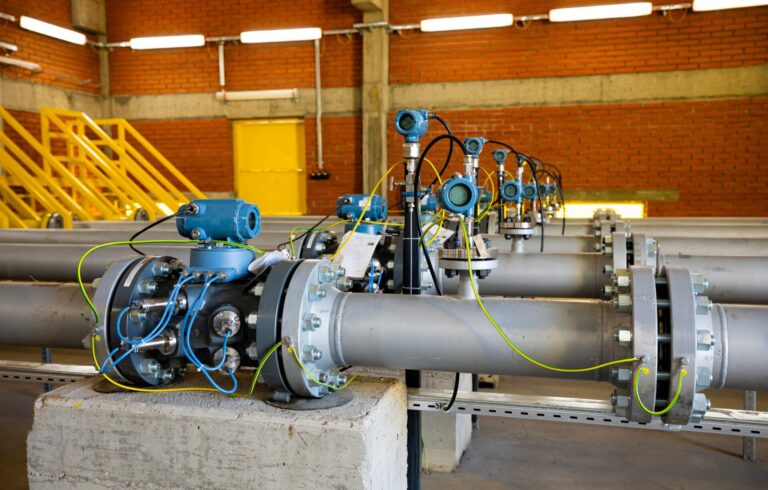Since the closure of Britian’s Ratcliffe-on-Soar coal plant in 2024, the energy sector has undergone significant changes. From supply chain disruptions to the rapid advancement of digital innovation, organisation across the UK are facing newfound opportunities to enhance sustainability and energy efficiency.
In today’s rapidly evolving business environment, staying abreast of industrial changes is not just advisable, it’s imperative. At BP Consulting, we’re committed to keeping you informed through our energy industry updates page, providing valuable insights into industry shifts that could impact your organisation. Our aim is to help you understand these changes and offer tailored guidance, including recommendations for tools and suppliers that suit your specific requirements.
Throughout our exploration of industrial changes, we’ll delve into key shifts occurring throughout the year, examining their implications across various sectors. Whether it’s fortifying supply chain resilience, embracing sustainable practices, navigating digital transformation, or ensuring regulatory compliance, our goal is to empower you with the insights and resources needed to stay competitive and thrive.
What's Happened In The Energy Industry This Year So Far:
February
- E-world Energy & Water (Feb 20th – 22nd) held a conference in Essen, Germany, convened to explore the European energy sector, emphasising the importance of managing the growing wind and solar energy output. Discussions circled on advancing renewable energy generation and embracing solutions such as grid modernisation, renewables integration, and digitalisation.
- Confirmation of Phase 4 of Public Sector Decarbonisation Scheme (PSDS) represents a commitment to reducing carbon emissions across public sector buildings. It’s launched as a part of the government’s broader Clean Growth Strategy, addressing the carbon footprint of public sector buildings, with an allocated budget of £1 billion to transition to net-zero by 2050.
- KEY – The Energy Transition Expo (Feb 28th – 1st March) in Rimini, Italy, is a leading event in the renewable energy and energy transition market. Dedicated to static residential and industrial utility-scale energy storage, which is rapidly growing across Europe, it joins six existing sectors; Solar, Wind, Hydrogen, Energy Efficiency, E-Mobility, and Sustainable City.
March
- The End of Energy Discount Scheme (Mar 31st) Introduced October 2022, the Energy Price Guarantee (EPG) was a supportive measure aimed at mitigating the effects of escalating energy costs. However, on September 21st 2024, the government unveiled a new initiative geared towards reducing energy expenses for non-domestic consumers, including businesses, SME’s, charities, and public sector entities.
April
- British Industry Supercharger (BIS) (April 1st) First announced and consulted on by the government, targeted measures have been introduced to reduce energy costs for key industries, including steel, metals, chemicals, cement, glass, and paper manufacturing. These measures are expected to deliver total savings of £320 million to £410 million for UK businesses by 2025.
- RenewableUK report proposes integrating energy storage with onshore wind and solar farms to cut electricity costs and benefit consumers. Co-locating battery storage and green hydrogen projects at existing clean energy sites could save time and money, with potential cost reductions of up to 5%. Transitioning to a flexible energy system with storage could save the UK £16.7 billion annually by 2050, offering significant consumer savings. These energy sites ensure a steady supply of clean electricity, addressing wind power variability and maximising renewable resources alongside grid upgrades.
- Viking Link (April 18th) The £1.8 billion project connecting the UK with Denmark was launched. With a capacity of 1.4 GW, Viking Link will power up 2.5 million UK homes and is the longest land and subsea cable in the world. It will deliver £5.2 billion in benefits to UK consumers. As the UK’s first connection to Denmark’s renewable energy resources, Viking Link will be essential in helping both countries achieve net zero carbon emissions.
May
- RenewableUK Grid & Storage (May 2nd) comprehensive programs cover strategic planning for a Net Zero grid and long-duration electricity storage solutions. These initiatives aim to unlock new opportunities and co-create solutions for a secure, sustainable energy future. The UK faces new challenges and opportunities in delivering the Net Zero grid by 2035.
- All-Energy (May 15th -16th) conference in Glasgow, Scotland, aimed at shaping a net-zero future. The conference focused on gathering renewable energy solutions, covering topics such as hydrogen, energy storage, community-driven decarbonisation initiatives, heat and transport innovations, offshore wind, marine renewables, and fostering future development.
What Is Still To Come In The Energy Industry This Year?
June
- Energy UK Lightning Bolt Talks (June 4th) – The Energy UK Lightning Bolt Talks will address the challenges the energy sector faces, from supporting customers to achieving Net Zero. The talks will release new information on improving energy in the UK. Key challenges include supporting consumers through the cost-of-living crisis and finding ways to achieve Net Zero. Addressing these challenges requires new methods for sharing and utilising data across the industry.
- Power2Drive (June 18th – 19th) – The Power2Drive conference will bring together major players in the transportation sector’s energy transition and manufacturers. The exhibition focuses on the latest technologies, solutions, and organisational models for a sustainable mobility world. Attendees can learn about the various aspects of the new energy world and discuss these with leading experts in the energy industry. Topics include the decentralisation, digitalisation, and sector coupling of energy supply, trends in photovoltaics and energy storage, and the newest charging technologies for electric vehicles.
September
- Onshore Wind Conference (Sep 3rd – 4th) – The Onshore Wind Conference in Edinburgh, Scotland, will cover critical topics in the onshore wind sector, including community benefits and engagement, land use and environmental issues, planning, legislation and regulation, technical barriers, supply chain, skills, the circular economy, and investment opportunities. Onshore wind energy is generated by wind turbines located on land, driven by the natural movement of air. This conference focuses on the role of the onshore wind energy sector in the UK’s energy strategy.
October
- GOV Press Release to End Coal Power –The UK is leading the charge in emissions reduction and climate action by moving up the deadline to eliminate coal from its energy system by one year. Effective October 1st, 2024, the UK will no longer rely on coal for electricity generation. This aligns with the government’s commitments to transition away from fossil fuels and decarbonise the power sector. This accelerated timeline supports efforts to eliminate contributions to climate change by 2050. Notably, coal-fired power plants were excluded from the recent Capacity Market auction for the first time ever in March. This auction secures electricity capacity to manage demand peaks from 2024 to 2028 at minimal cost to consumers.
Floating Offshore Wind (Oct 9th to 10th) – Scottish Renewables and RenewableUK have jointly announced the establishment of a meeting hub for current and future participants in the global floating wind sector. This initiative offers an exceptional opportunity to connect and engage with key figures, facilitating discussions on crucial technical and innovative solutions essential for the advancement and commercial success of floating wind technology.
BP Consulting Are Here To Help
As we reflect on the significant industrial changes since the beginning of 2024, its evident that the landscape of organisations and the energy sector is rapidly evolving. From the closure of Britain’s last coal plant, a surge in renewable energy and digital innovations.
BP Consulting is dedicated to keeping you informed about these changes and helping you seize opportunities in renewable energy, energy storage, sustainable mobility, and grid modernisation. We also track important government actions and regulations affecting these areas.
Join us at BP Consulting as we navigate this dynamic landscape together. Visit our energy industry updates page for the latest insights and updates, or contact our team for personalised guidance on aligning with new regulations and sustainability goals. Reach out today to discuss your sustainability journey!






